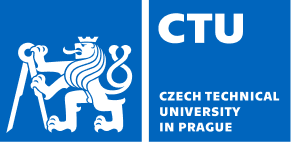About this course
The subject deals with corporate social responsibility (CSR). The CSR concept builds on the principle 3P: people-planet-profit. The course focuses on an explanation of the theoretical background of this concept, the interpretation of documents regulating corporate social, economic and environmental activities, and non-financial reporting standards. It includes a link between the CSR concept with corporate processes, especially business strategy, HRM, marketing, and PR. Illustrations of various CSR strategies and practices cover case studies of projects designed abroad, and in Czech conditions.
Learning outcomes
Goals:
- To get knowledge about the concept of CSR and its strategy and practices, international standards of non-financial reporting and implementation of CSR into corporate processes.
- To develop skills by writing a seminar work, its presentation, organizing and managing a workshop.
Course requirements
Requirements: Credit: Exercise/seminar attendance (80 %) + seminar work + its presentation. Additional: organizing and managing a workshop (only three students of the course will organize and manage workshops; they will not write a seminar work) Exam: Test + oral exam
Resources
- Literature
- Obligatory:
- 2018 Deloitte Global Human Capital Trends. The rise of social enterprise. Retrieved from https://www2.deloitte.com/content/dam/Deloitte/at/Documents/human-capital/at-2018-deloitte-human-capital-trends.pdf
- European Commission. DIRECTORATE-GENERAL FOR EMPLOYMENT AND SOCIAL AFFAIRS,(2004) ABC of the main instruments of corporate social responsibility. Luxembourg. Office for Official Publications of the European Communities. Chapter: 2. Management standards (2.1-2.3, 2.5.1-2.5.2), Chapter 3. Reporting (3.1-3.3).
- Global Reporting Initiative's G4 Guidelines. Retrieved from https://www.globalreporting.org/standards.
- https://ec.europa.eu/growth/industry/corporate-social-responsibility_en
- https://ec.europa.eu/info/business-economy-euro/company-reporting-and-auditing/company-reporting/non-financial-reporting_en
- Porter, M.E., & Kramer, M.R. (2006). Strategy and society: the link between competitive advantage and corporate social responsibility. Harvard Business Review, 84 (12), 78-92.
- Recommended:
- Bondy, K., Moon, J., & Matten, D. (2012). An institution of corporate social responsibility (CSR) in multinational corporations (MNCs): Form and implications. Journal of Business Ethics, 111 (2), 281-299.
- Crane, A., & Matten, D. (2010). Business Ethics. Managing corporate citizenship and sustainability in the age of globalization. (3rd edition). New York: Oxford University Press. 648 p.
- Crane, A., McWilliams, A., Matten, D., Moon, J., & Siegel, D.S. (eds). (2008). The Oxford Handbook of Corporate Social Responsibility. New York: Oxford University Press. 608 p.
- Dillard, J.F., Haynes, & Murray, A. (2013): Corporate Social Responsibility: a research handbook. London. Routledge.
- https://textbooks.opensuny.org/good-corporation-bad-corporation/
- Kotler, P., & Lee, N. (2005) Corporate social responsibility: doing the most good for your company and your cause. Hoboken. John Wiley & Sons.
Activities
Seminars, Group work
Additional information
- Coordinating facultyCzech Technical University in Prague
- Contact a coordinator
- CreditsECTS 6
- Contact hours per week4
- Instructorsdoc. Ing. Jindřichovská Irena CSc.
- Mode of instructionHybrid
Offering(s)
Start date
17 February 2025
- Ends21 September 2025
- Term *Summer 2024/2025
- Instruction languageEnglish
Enrolment period closed
